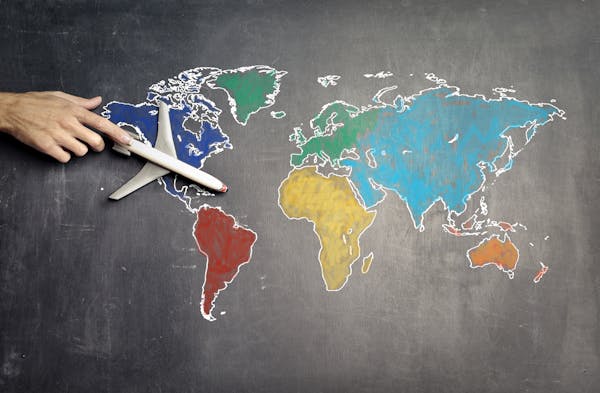Explore the path to global educational excellence, including key principles, challenges, and future trends in education. Learn how institutions can foster excellence.
1. Introduction
Global educational excellence refers to the pursuit of high standards in education across all nations. This concept emphasizes not just academic achievement but also the holistic development of learners to meet global challenges. With globalization making the world more interconnected, the need for a universally excellent education system is more crucial than ever.
In this article, we will explore what global educational excellence means, the key principles and standards driving it, the role of technology, challenges faced, and future trends. We will also delve into practical applications for educators and institutions.

2. The Concept of Global Educational Excellence
Historical Evolution
Global educational excellence has evolved from localized systems focused on national priorities to an interconnected approach. Early education systems were primarily concerned with literacy and basic skills. Today, excellence encompasses a broader range of outcomes, including critical thinking, collaboration, and adaptability.
Key Principles of Educational Excellence
Educational excellence is grounded in principles such as equity, inclusiveness, innovation, and continuous improvement. These principles ensure that learners, regardless of their background, can achieve their full potential in a rapidly changing world.
3. Global Benchmarks and Standards
UNESCO and OECD Initiatives
Organizations like UNESCO and the OECD play a pivotal role in setting global standards for education. UNESCO’s Education for All (EFA) initiative focuses on ensuring access to quality education, while the OECD’s Programme for International Student Assessment (PISA) provides a global benchmark for educational outcomes.
International Education Rankings (PISA, TIMSS)
International assessments like PISA and TIMSS offer valuable insights into how different countries perform in education. These rankings help identify areas of excellence and opportunities for improvement, fostering global competition and collaboration in education.
4. Role of Technology in Global Educational Excellence
Digital Transformation in Education
Technology is a driving force behind global educational excellence. The digital transformation of education allows for more personalized learning experiences, breaking down traditional barriers of access and enabling students from around the world to learn at their own pace.
E-Learning and Global Collaboration Platforms
E-learning platforms like Coursera, edX, and Khan Academy have democratized education by providing access to world-class content. These platforms foster global collaboration, allowing students and educators to share knowledge and best practices across borders.
5. Quality and Accessibility in Education
Bridging the Gap in Underprivileged Regions
Achieving global educational excellence requires addressing disparities in access to quality education. Many regions, especially in developing countries, face challenges such as lack of infrastructure, trained teachers, and resources. Initiatives like the Global Partnership for Education (GPE) aim to bridge this gap.
Ensuring Equal Opportunities for All Learners
Educational excellence is not just about high achievement but ensuring that all learners have equal opportunities to succeed. This means providing support for disadvantaged students, including those with disabilities, from minority backgrounds, or in rural areas.
6. Educator Development and Training
The Importance of Teacher Education
Teachers are at the heart of educational excellence. Investing in teacher education and professional development is essential to ensure that educators are equipped with the skills and knowledge needed to foster excellence in their students.
International Teacher Exchange Programs
Teacher exchange programs promote global educational excellence by allowing educators to learn from different systems and bring back innovative practices to their classrooms. These exchanges foster cross-cultural understanding and improve teaching methodologies.
7. Cultural Integration and Global Citizenship
Promoting Cultural Awareness in Education
Global educational excellence involves not only academic success but also cultural integration. Education systems must promote cultural awareness, helping students understand and appreciate diverse perspectives. This prepares them to thrive in a multicultural world.
Developing Global Citizens Through Education
Educating global citizens means preparing students to engage with and contribute to the global community. This includes fostering skills like empathy, critical thinking, and collaboration, which are essential for addressing global challenges such as climate change, inequality, and conflict.
8. Case Studies of Successful Educational Systems
Finland’s Education Model
Finland is often cited as a model of educational excellence due to its focus on equity, well-trained teachers, and a balanced approach to curriculum and assessment. Finland’s system prioritizes student well-being alongside academic achievement, resulting in high performance and student satisfaction.
Singapore’s Approach to Excellence
Singapore’s education system is another example of global excellence, known for its rigorous standards, strong emphasis on science and technology, and continuous improvement strategies. Singapore’s approach balances high expectations with support systems that ensure no student is left behind.
9. Challenges in Achieving Global Educational Excellence
Socioeconomic Disparities
Socioeconomic disparities remain a significant barrier to achieving global educational excellence. Students from low-income families often face additional challenges in accessing quality education, such as limited resources, lack of parental support, and inadequate learning environments.
Political and Policy Challenges
Political instability and inconsistent education policies can hinder progress towards educational excellence. Governments must prioritize education and implement consistent policies that support long-term improvements rather than short-term gains.
10. The Future of Global Education
Emerging Trends and Innovations
The future of global education is being shaped by emerging trends such as personalized learning, data-driven instruction, and the integration of artificial intelligence (AI) in classrooms. These innovations hold the potential to revolutionize education by making it more efficient, effective, and accessible.
The Role of AI in Education
AI is poised to transform global education by providing personalized learning experiences, automating administrative tasks, and enabling data-driven decision-making. AI-powered tools can help identify students’ strengths and weaknesses, offering tailored support to enhance learning outcomes.
11. Expert Insights on Educational Excellence
Quotes from Leading Educational Experts
Experts in the field emphasize the importance of collaboration, innovation, and inclusiveness in achieving educational excellence. Sir Ken Robinson, a renowned educational thinker, famously argued that creativity is as important as literacy in education.
Insights from Global Education Summits
Global education summits, such as the World Education Forum, provide a platform for leaders, educators, and policymakers to share insights and strategies for achieving excellence. These events highlight best practices and foster international collaboration in education.

12. Practical Applications for Educational Institutions
Implementing Excellence Strategies in Schools
Schools can implement strategies for excellence by focusing on holistic development, encouraging critical thinking, and promoting collaboration. Schools should also prioritize continuous professional development for educators and use data to drive improvement.
Encouraging International Collaboration Among Institutions
International collaboration among educational institutions fosters the exchange of ideas, best practices, and resources. Partnerships between schools in different countries can enhance the quality of education and contribute to global educational excellence.
13. How Governments Can Foster Educational Excellence
Policy Recommendations
Governments play a crucial role in fostering educational excellence by implementing policies that support quality education, providing adequate funding, and ensuring equal access for all students. Policies should focus on long-term improvements and be adaptable to changing global needs.
Investment in Education Infrastructure
Investing in education infrastructure, including school buildings, technology, and teacher training, is essential for achieving excellence. Governments must prioritize education in their budgets and ensure that resources are allocated effectively to address the needs of all students.
14. The Importance of Lifelong Learning
Encouraging Continuous Learning Beyond Formal Education
Lifelong learning is a key component of global educational excellence. Encouraging continuous learning beyond formal education helps individuals stay relevant in a rapidly changing world. It also fosters personal growth, creativity, and innovation.
Building a Global Culture of Learning
Building a global culture of learning involves creating environments that value and promote continuous learning at all stages of life. This includes supporting adult education, vocational training, and opportunities for reskilling and upskilling.
15. Conclusion
Global educational excellence is essential for addressing the challenges of the 21st century. By focusing on equity, innovation, and collaboration, education systems can ensure that all learners have the opportunity to succeed. The future of education is promising, with emerging technologies and global initiatives paving the way for a more inclusive and effective system. Educational institutions, governments, and educators must work together to make global educational excellence a reality for all.
